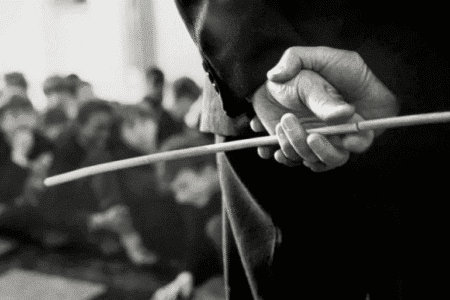Leaks preceding Monday’s session igniting a wave of anger

The ancient owners between the hammer of the amendments and the anvil of persistent injustice
The issue of non -residential rents returned to the forefront again, in a charged atmosphere and conflicting positions, on the eve of the parliamentary session scheduled on Monday, during which proposals will be discussed to amend the rental law for non -residential places. This return was accompanied by leaks dealing with sensitive materials from the expected law, which sparked a wave of discontent and anger among the old owners, who described the amendments as a “new legislative setback”.
Renewed old controversy:
The law of non -residential rents has always been one of the most complex contentious files in Lebanon, due to its extension over long decades, as the ancient owners of exceptional laws imposed on them to rent their property at low prices, and prevented them from disposing of them freely, which caused the erosion of their financial and constitutional rights. Despite the partial reforms that were previously introduced, the issue remained stuck in the circle of political bargaining, which led to the establishment of a state of chronic legal injustice.
Suggested amendments … hitting the balance of justice?
According to the leaks, the new amendments tend to reduce the extension period from 11 years to 8 years, which means blowing up previous understandings and changing the rules of the game in the middle of the road. The ancient owners consider that this amendment is only an additional step that deepens the prejudice of their rights, as it drops the possibility of just compensation or the restoration of ownership in an acceptable time frame.
Legal sources that keep pace with the file expressed their surprise at the political timing in which these amendments were presented, asking about the party behind an attempt to pass them in a quick form without returning to consulting the concerned or taking unions and human rights bodies.
Who is the real beneficiary?
According to unofficial figures, less than 20% of non -residential places in Lebanon are still subject to old lease laws, while more than 80% are going according to modern contract freedom. On this basis, the proposed adjustments focus on a narrow segment of the occupants, most of them senior traders and financial institutions that have reaped huge profits for years at the expense of frozen rental suits. On the other hand, the owners only obtained “crumbs”, and they bear the burdens of taxes, maintenance and economic collapse.
Many owners consider that extending rental contracts with political decisions does not take into account their living conditions, violates the principles of social justice and constitutes a flagrant violation of the constitution that guarantees the preservation of private ownership.
Judicial and constitutional repercussions:
The reopening of the file in this way has sparked real concerns about the cancellation of the effects of hundreds of lawsuits that the Lebanese judiciary considers today, as the owners hope to restore their rights under the law in force. Any ill -considered amendment may turn these cases into expired files, and strike the work of the judiciary at its core, especially since some cases have reached advanced stages of pleadings.
Malcon’s position: There is no silence after today
Legal personalities and activists in rental cases have confirmed that any new law should be the result of a comprehensive national consensus that takes into account the balance between the right of the owner and the right of the tenant, and not the result of pressure from groups of economic and political interests. They warned against the consequences of perseverance in the injustice of a group that has long suffered from unfair laws, stressing that moving in the street and resorting to the Constitutional Council will be inevitable if the proposed amendments are approved.
Instanding bodies confirmed that the ancient owners are not against reform or social stability, but they refuse to be asked again to pay the price of political balances at the expense of their future and their only source of livelihood. “Ownership does not mean wealth”, as many of those affected say, but sometimes mean chronic suffering in light of “exceptional” laws that turned into a rule.
Calls to reconsider:
In light of the above, the voices demanding the freezing of any amendment until a real national dialogue includes all parties affected by the law, and sets a clear road map that ends the rental crisis with fairness, away from the logic of dominance and narrow interests.
Activists in this file assert that sound legislation does not build on temporary settlements, but rather an integrated approach that restores the citizen’s confidence in the law and preserves rights and dignities, and through which the distortions of the past are treated without the production of new grievances in the future.
The post Leaks preceding Monday’s session igniting a wave of anger appeared first on 961 tobay Lebanon today.
















